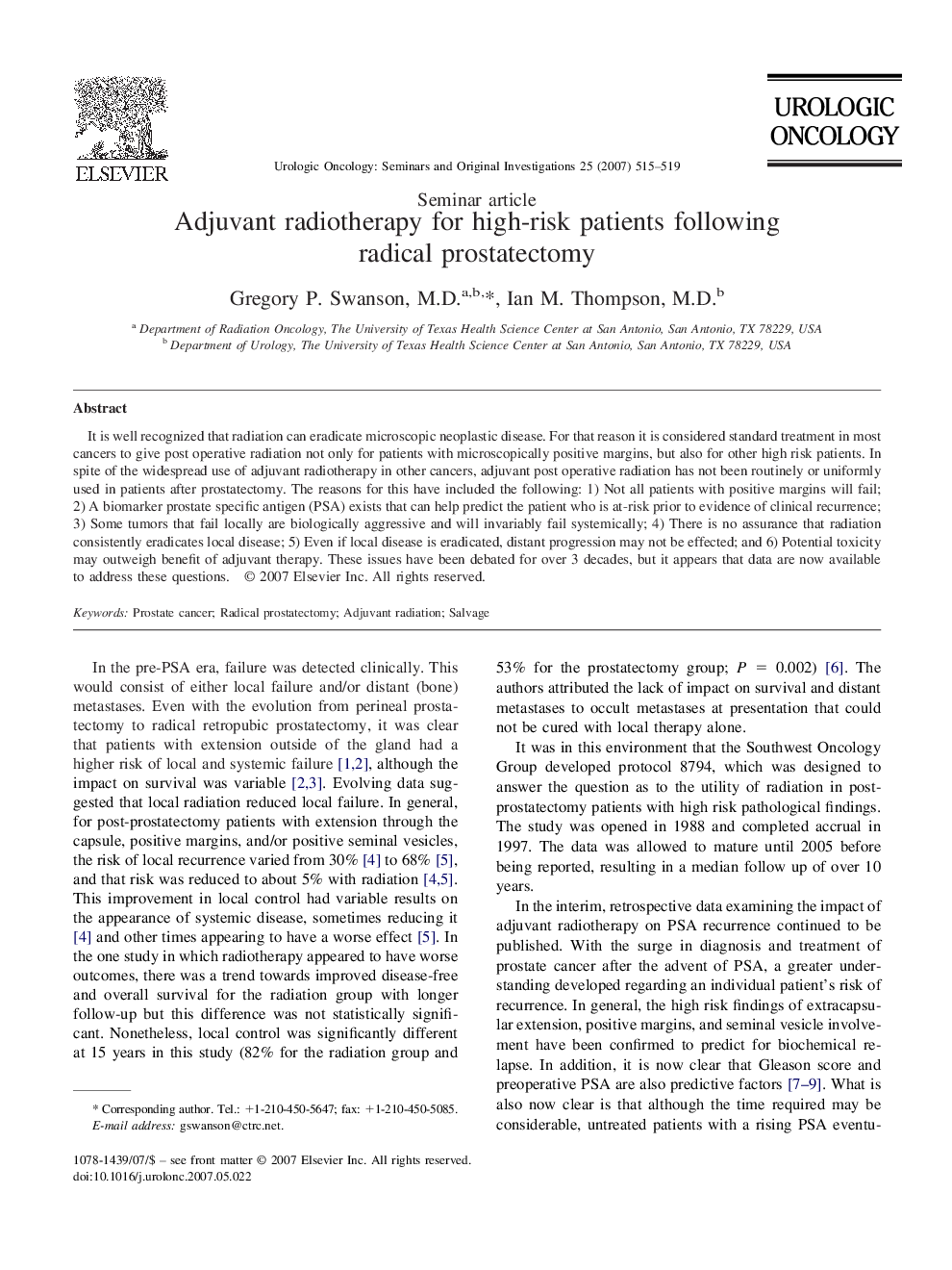| Article ID | Journal | Published Year | Pages | File Type |
|---|---|---|---|---|
| 4001519 | Urologic Oncology: Seminars and Original Investigations | 2007 | 5 Pages |
It is well recognized that radiation can eradicate microscopic neoplastic disease. For that reason it is considered standard treatment in most cancers to give post operative radiation not only for patients with microscopically positive margins, but also for other high risk patients. In spite of the widespread use of adjuvant radiotherapy in other cancers, adjuvant post operative radiation has not been routinely or uniformly used in patients after prostatectomy. The reasons for this have included the following: 1) Not all patients with positive margins will fail; 2) A biomarker prostate specific antigen (PSA) exists that can help predict the patient who is at-risk prior to evidence of clinical recurrence; 3) Some tumors that fail locally are biologically aggressive and will invariably fail systemically; 4) There is no assurance that radiation consistently eradicates local disease; 5) Even if local disease is eradicated, distant progression may not be effected; and 6) Potential toxicity may outweigh benefit of adjuvant therapy. These issues have been debated for over 3 decades, but it appears that data are now available to address these questions.
